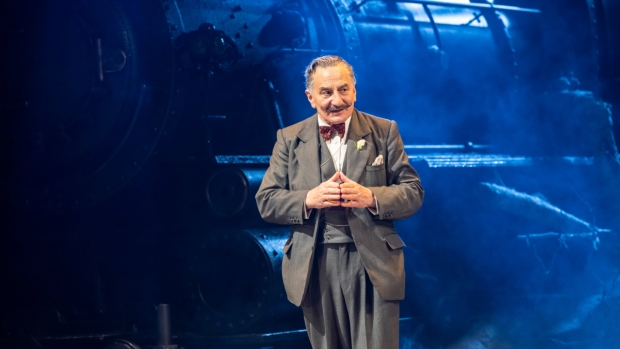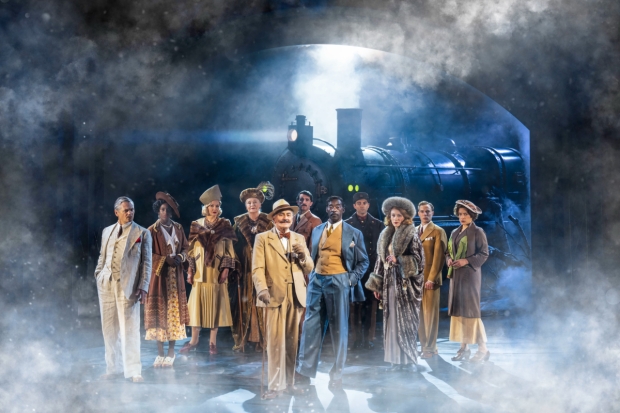Murder on the Orient Express at Chichester Festival Theatre – review
Henry Goodman takes on the iconic role of Hercule Poirot

© Johan Persson
First there was Finney, mostly there was Suchet, more recently along came Branagh. Now though there is a new Poirot in town – and what a fine job Henry Goodman does in bringing the "funny little Belgian" and his "little grey cells" to life in one of Agatha Christie's most decadent of crimes stories: Murder on the Orient Express.
A chilling prologue sets the scene from the get-go with the disturbing abduction of five-year-old Daisy Armstrong before we are swept away to Istanbul to meet those on the Orient Express passenger list to London. Seemingly unconnected and all colourfully created the number has been trimmed down significantly (and necessarily) from twelve to eight by adaptor Ken Ludwig. Weaving through them all is the ever observant and never self-deprecating Hercule Poirot – self-proclaimed detective extraordinaire and never without a twinkle in his eye – he quietly observes and digests everything around him. As the snow begins to fall (literally), the train becomes stranded and it isn't long before Poirot is unexpectedly put to work.
Robert Jones has designed a little bit of stage magic at Chichester and as the Orient Express leaves the station there is a fluidity of movement and motion on stage that is really quite stunning. Mark Henderson's lighting adds to the effect and with Adrian Sutton's glamorous filmic underscore it is a treat to be transported to a bygone cinematic era. High vaulted archways surround an enormous steam locomotive and move in snake-like fashion to propel the engine forward whilst beautiful art-deco sleeping compartments and dining cars are manoeuvred in front on the polished marble stage. The Chichester stage has rarely looked so good.
Former Chichester artistic director Jonathan Church directs with a slick assuredness and confidently tries to keep things railroading at pace. A slow start that is clogged up with character introductions and exposition soon picks up steam to get things moving. The dastardly Samuel Ratchett (Timothy Watson), the haughty Princess Dragomiroff (Joanna McCallum) and the beguiling Countess Andrenyi (Laura Rogers) all offer as many clues as red-herrings along the way. A bouncy Patrick Robinson as train manager Monsieur Bouc tries to keep them all under control whilst a boisterous Sara Stewart as Helen Hubbard – the token vulgar American – does all she can to stay firmly out of control.

© Johan Persson
Ludwig's stage adaptation makes no attempt to explore any of the characters too deeply – but he clearly revels in the period (1934) and only briefly hints at the wider world at that time when mentioning "a world in chaos, where there will be war and tyranny".
It is around Goodman's perfectly crafted Poirot that the night revolves however. Goodman harnesses the well-known quirks and shuffles of the Belgian detective with ease. Slightly hunched and always clenched he offers a more expressive Poirot than some others previous and relishes in his crime solving with a measured excitability. Goodman's skill is in keeping the impeccably mannered man as likeable despite his many peculiarities. It's an impressive performance that shows little or no fear of those that have been before. The closing scenes allow Goodman to stretch is acting muscles a little further with some nicely observed moments where moral arguments around justice and liberty are touched on.
Christie made history once by being the only woman to have three plays running in the West End simultaneously. With the continued success of The Mousetrap and Witness for the Prosecution in London currently, I wonder if this elegant show will join them and make the record happen once more.
It's a sumptuous ride and a delicious night of intrigue and glamour.












